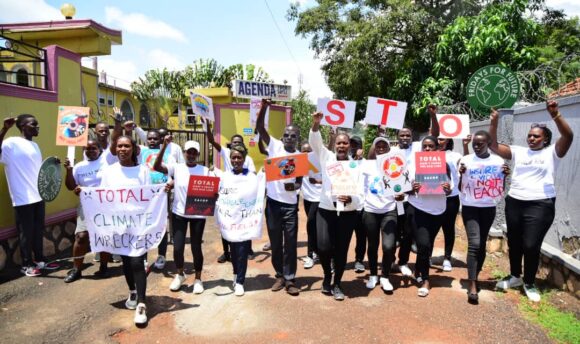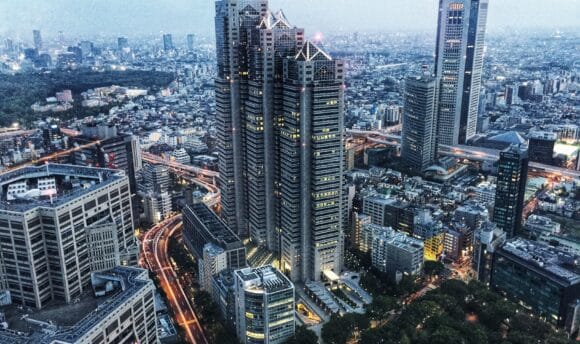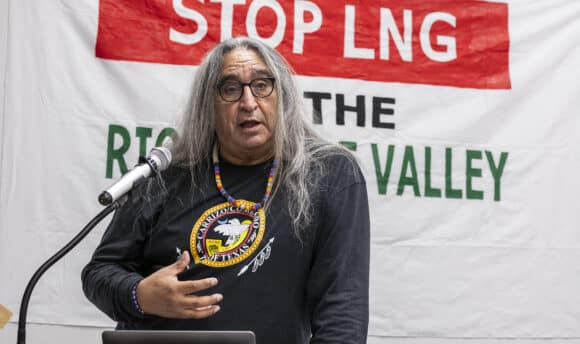From February 26th to March 3rd, Insure Our Future organized the “Global Week of Action“. During this week, over 100 actions were taken in 31 countries worldwide, with thousands of people demanding major insurance companies to stop underwriting fossil fuel projects. Actions were taken not only on the ground but also online, thousands of people sent half a million messages and email to the companies and #InsureOurFutureNOW was trending on X in the United Kingdom twice.
Among the insurance giants which still support the fossil fuel industry, Tokio Marine was one of the insurers heavily criticised by many fossil fuel frontline organisations and communities. Tokio Marine is the largest property and casualty insurance company in Japan. Its insurance premium from the fossil fuel industry was approximately $47.5 million in 2022, ranking as the top 15 global fossil fuel underwriters.
Insurance plays a crucial role in fossil fuel projects going forward, and without it, such projects cannot go ahead. However, many insurance companies, including Tokio Marine, have insufficiently strengthened their underwriting policies to prevent climate change and human rights abuses to local communities at fossil fuel development sites.
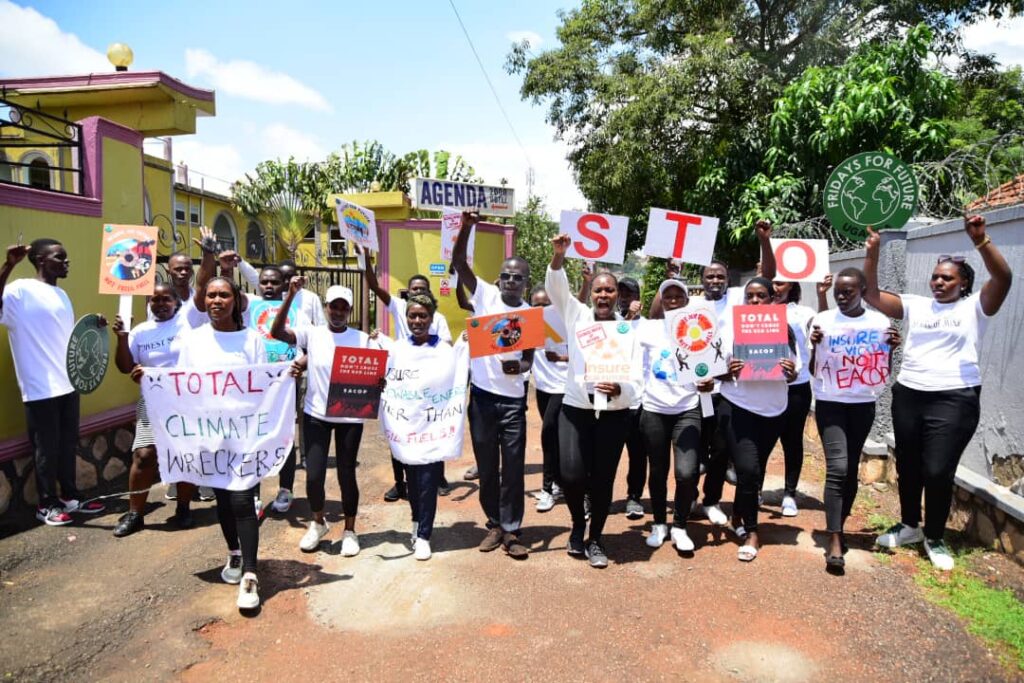
The EACOP is deeply concerning due to the impacts to the unique local ecosystems, Greenhouse Gas (GHG) emissions and serious human rights violations in local communities. While 29 global insurance companies have announced they will not provide insurance for this project, Tokio Marine still leaves the possibility of underwriting this project.
Tokio Marine’s inaction has drawn significant attention from international organizations, as well as many other concerned citizens, as insurance is the key to the EACOP, whether the project moves forward or not. For years, both domestic and international civil society organizations have urged Tokio Marine to publicly announce it won’t underwrite the project. However, Tokio Marine keeps repeating that they, “Cannot make comments on each project.”
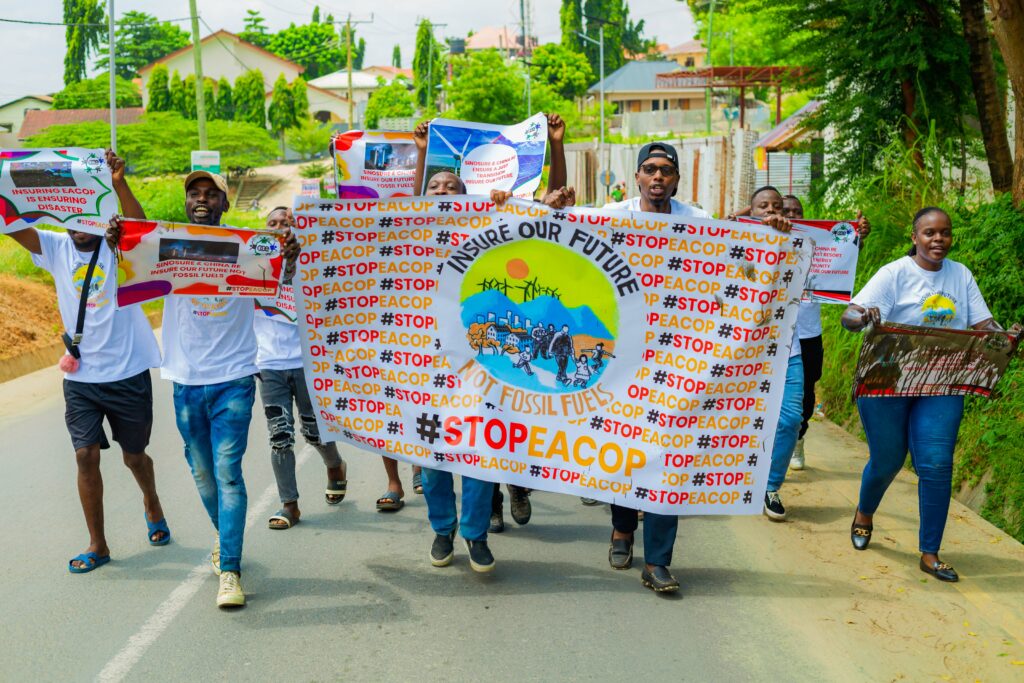
From an action in front of the Tokio Marine’s headquarters to EACOP impacted communities in Tanzania and Uganda, as well as creative actions by environmental organisations in Asia and Europe, a number of people protested against Tokio Marine’s support to the fossil fuel industry during the Global Week of Action.
In Indonesia, the Don’t Gas Indonesia Network organized an action in Banten and Karawang. Our previous report relieved that Tokio Marine underwrote the Java 9 and 10 coal-fired power plants in Banten.
“There are a number of things that are concerns for the community around the location of fossil projects such as the Java 9-10 project, for example, the health impact where many people are affected by Acute Respiratory Infections which we suspect comes from coal dust, then the reduction in catches for fisherfolk, and the recruitment of workers who mostly come from outside the location without a priority for local communities.” — Sigit Karyadi Budiono, Don’t Gas Indonesia
In Karawang, where the Java 1 power plant is located, a student group protested by a performance in front of a symbolic monument. Local concerns include issues such as depletion of water resources, air pollution, and reduction of fish catches in the surrounding areas.
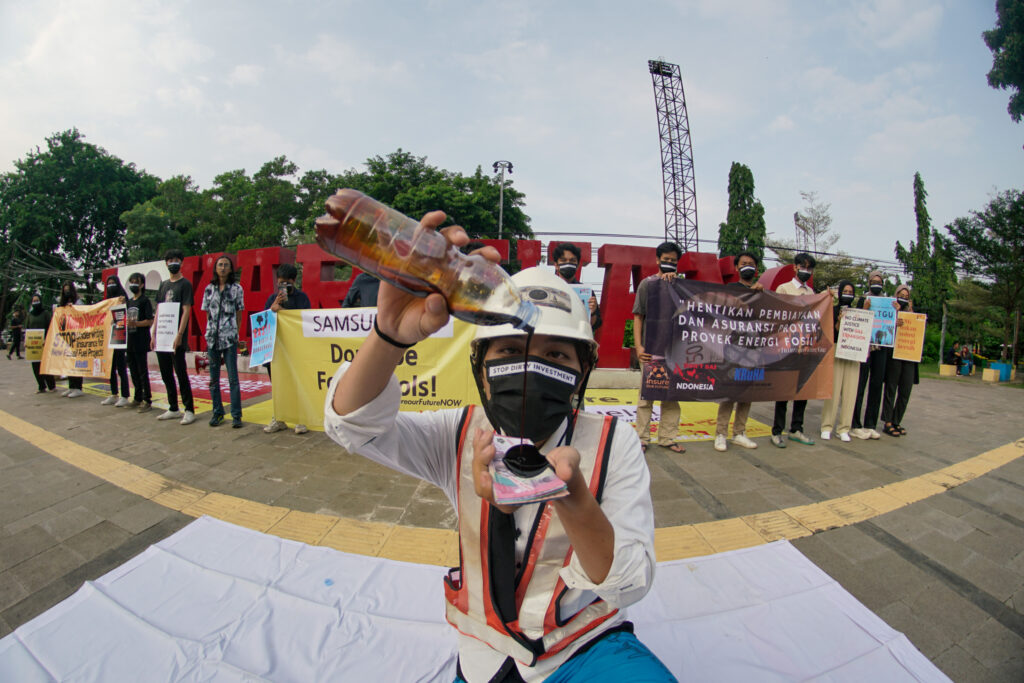
At a popular park in Manila, Philippines, the Asian Peoples Movement on Debt and Development (APMDD) protested with signs saying “Insure Our Future, Not Fossil Fuels” and urged insurers to stop underwriting controversial fossil fuel projects.
“Insurance agencies like Tokio Marine and Samsung Fire & Marine should not worsen the climate crisis and inflict harm on communities. They should stop insuring and underwriting fossil fuel companies and projects like the Batangas LNG plant and many others across Asia.” — Lidy Nacpil, Coordinator of APMDD.
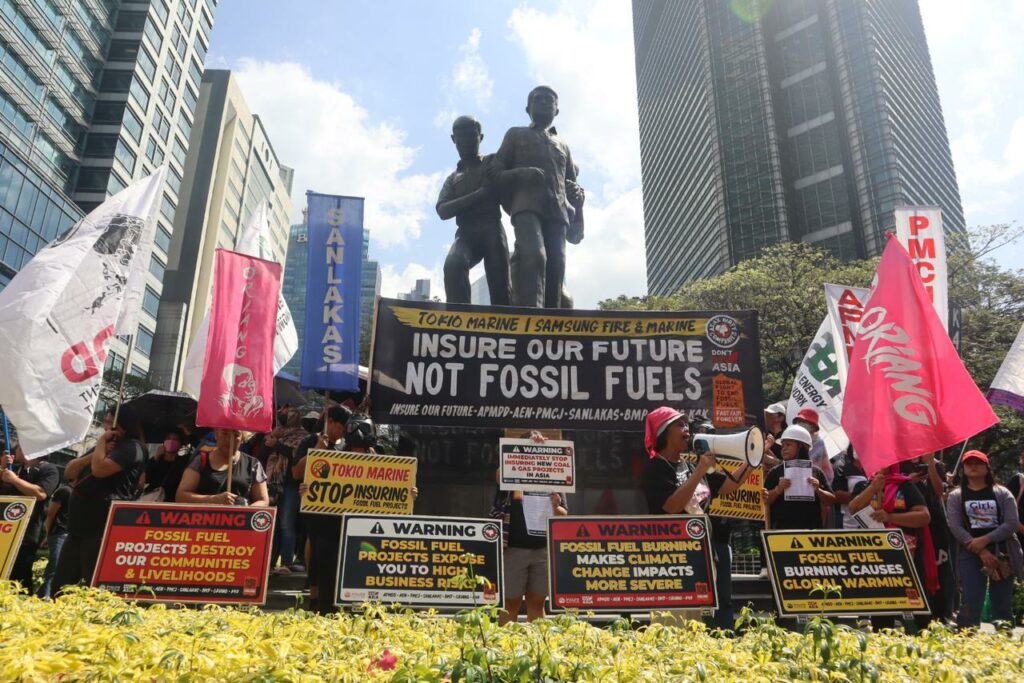
Bangladesh is one of the most vulnerable countries to climate change, despite its GHG emission being low. Waterkeepers Bangladesh protested against fossil fuel insurers by bicycles with picket banners. One of the destinations of the young cyclists was the Matabari coal power plant.
In the vicinity of the Matabari coal power plant, it was concerned that many residents who relied on livelihoods such as shrimp farming lost their source of income as a result of the power plant construction. The project is supported by a Japanese organisation and corporation: JICA and Mitsubishi Heavy Industries. The coal-fired power project was halted due to domestic and international criticisms. However, concerns still persist as a new gas-fired power generation project using imported LNG.
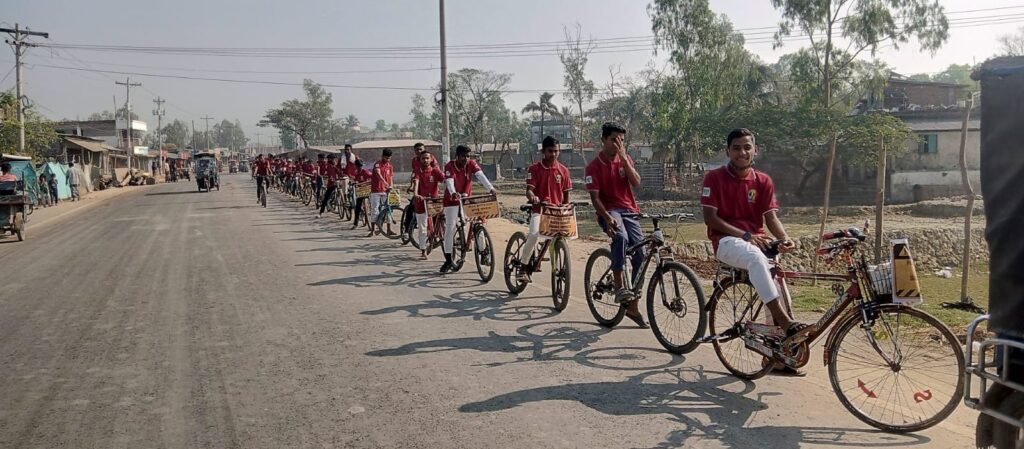
In Pakistan, together with concerned citizens, Pakistan FisherFolk Forum and other civil society organizations protested against insurance companies including Tokio Marine who support fossil fuel projects that affect the livelihood of local people. Nearly two hundred people joined the march, which received coverage in local media outlets on television and in newspapers.
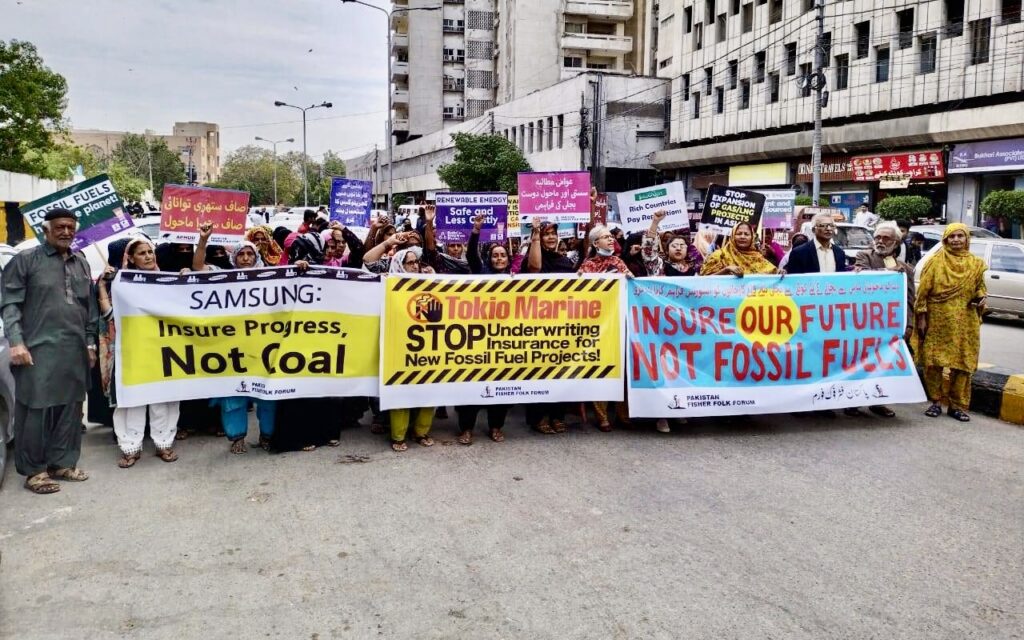
People urged insurers to “Insure our Future” from Seoul, South Korea, where a transition away from coal is a key issue. Solutions for Our Climate urged Samsung Fire & Marine Insurance and Tokio Marine to strengthen their underwriting policies and stop underwriting fossil fuel projects.
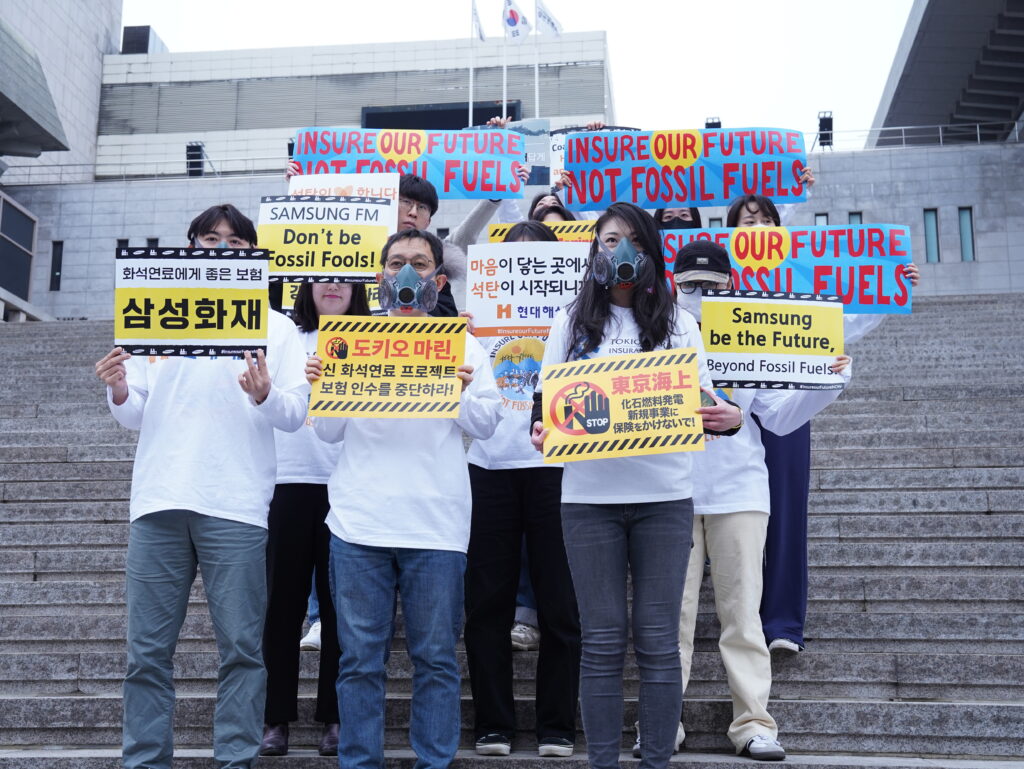
Insure Our Future will continue to support impacted communities and organisations working on these issues until major insurance companies take bold action to Insure Our Future, not fossil fuels.


